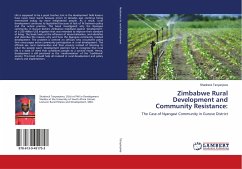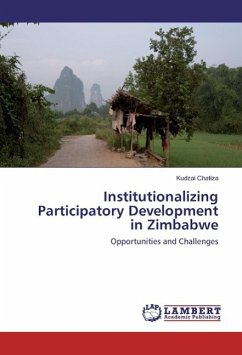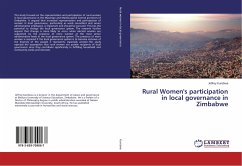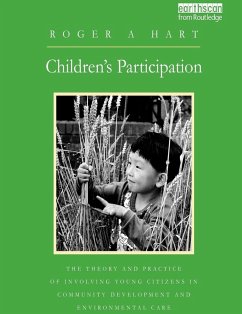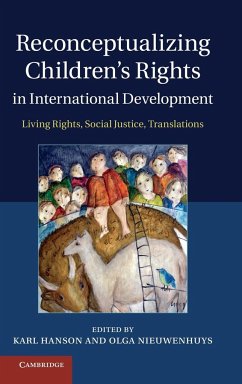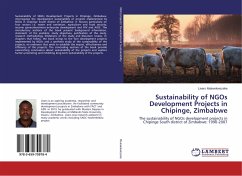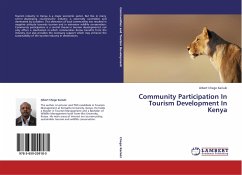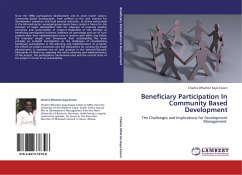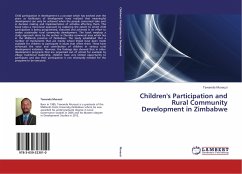
Children's Participation and Rural Community Development in Zimbabwe
Versandkostenfrei!
Versandfertig in 6-10 Tagen
39,99 €
inkl. MwSt.

PAYBACK Punkte
20 °P sammeln!
Child participation in development is a concept which has evolved over the years as facilitators of development have realized that meaningful development can only be achieved when the people concerned take part in decision making and implementation of activities affecting them. This book takes a micro-level approach by exploring the extent to which child participation is being programmed, executed and achieved in an effort to realize sustainable rural community development. The book employs a study approach done by the author in Zhombe communal area which lies in the Midlands province of Zimba...
Child participation in development is a concept which has evolved over the years as facilitators of development have realized that meaningful development can only be achieved when the people concerned take part in decision making and implementation of activities affecting them. This book takes a micro-level approach by exploring the extent to which child participation is being programmed, executed and achieved in an effort to realize sustainable rural community development. The book employs a study approach done by the author in Zhombe communal area which lies in the Midlands province of Zimbabwe. The study established that a number of mechanisms that are mainly school linked have been made available for children to participate in issues that affect them. These have enhanced the voice and contribution of children in various rural development initiatives. However, the findings also showed that in other development programs that are organized out of school for example by village traditional leadership, children have very limited opportunity to participate and also their participation is not necessarily needed for the programs to be executed.



